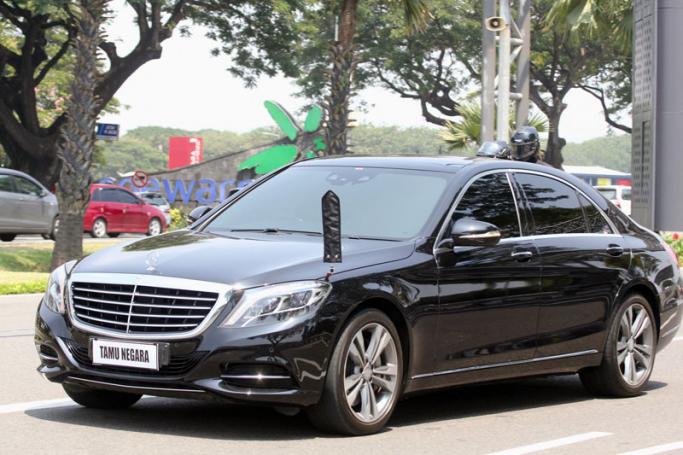ASEAN leaders did not recognise Senior General Min Aung Hlaing, either formally or informally, as the representative of Myanmar’s state at the emergency ASEAN summit hosted by Indonesia in Jakarta on 24 April. Nor did they invite representatives of the National Unity Government (NUG) which consists of Myanmar’s democratically elected members of parliament and ethnic nationalities leaders. For ASEAN leaders, recognition of Myanmar’s legitimate state representative remains an open question yet to be determined.
Held in Jakarta, the ASEAN summit was hosted by the current rotating chair, Sultan Haji Hassanal Bolkiah of Brunei Darussalam and attended by country leaders of Indonesia, Singapore, Malaysia, Cambodia, Vietnam, and Laos. Thailand and the Philippines were represented by their foreign ministers.
‘There are many ways states and international bodies can accept as the government of Myanmar, reject or avoid taking a stance on a person as a state representative’, explained Niko Pavlopoulos, an expert on international recognition of state representatives at the University College London.
There are well established acts of formal recognition such as statements of recognition issued unilaterally by states. However, there are also more subtle and nuanced acts performed in the course of diplomatic engagement which informally send signals about a state’s position, particularly when they wish to retain flexibility in relation to the status of certain actors.
Several acts of diplomatic protocol signalled the ASEAN leaders’ continuing avoidance of their regional and unilateral political decisions regarding the legitimate representative of the Myanmar state internationally.
First, ASEAN leaders met with Min Aung Hlaing only in his capacity as military chief, not country leader. According to the New York Times, a statement from the Indonesian government announcing General Min Aung Hlaing’s arrival for the summit identified him as the commander-in-chief of Myanmar’s military. This is significant, says former Australian Diplomat to Myanmar, Chris Lamb, as this is the same official title Min Aung Hlaing held prior to his takeover of government apparatus on 1 February.
Second, Min Aung Hlaing himself appeared reluctant to act as a state representative when visiting Indonesia. As reported in the Jakarta Post, sharp observers noted that the vehicle transporting Min Aung Hlaing to the summit from Jakarta’s Soekarno-Hatta international airport after his arrival did not fly the Myanmar flag. Rather the car flagpole was protected by a black cover. This is so despite the fact that state representatives typically fly their state flags in such contexts. Indeed, Article 20 of the 1961 Vienna Convention on Diplomatic Relations gives diplomatic heads of mission the right to display their flag on their means of transport.
Third, several photos of Min Aung Hlaing’s arrival at Soekarno-Hatta international airport picture the general in front of a red carpet. Ironically, it is a photo published in the state-owned and military controlled Global Light of Myanmar that reveals this carpet to lie only on the steps of Myanmar Airplane. No red carpet was rolled out on the tarmac on Indonesian soil. Indeed, Min Aung Hlaing appears to have rolled out his own red carpet.
The five-principle statement reached by consensus by ASEAN leaders prior to, but adopted at, the summit calls for dialogue between all parties without distinction according to political status. In doing so the leaders signal that legitimate representation should be derived through a negotiated agreement between parties yet to be named.
Following the summit, leaders of Singapore and Indonesia made strong statements during press conferences denouncing the violence perpetrated during the post-takeover crackdown and calling for a return to democracy.
“The situation in Myanmar is something that is unacceptable and must not continue,” Mr. Joko said in a video statement after the meeting. “Violence must be stopped, and democracy, stability and peace in Myanmar must be restored.”
Many feared in the lead up to the ASEAN leaders’ emergency summit that meeting Min Aung Hlaing without the presence of a NUG representative would signal automatic recognition of legitimacy as state leader. Indeed, the military mouthpiece, the Global Light of Myanmar, has tried to spin Min Aung Hlaing’s attendance as such.
The forceful military takeover of government apparatus on 1 February on Min Aung Hlaing’s orders instantly disrupted the pre-existing recognition status of the Aung San Suu Kyi-led government. Since then, the international community has been unwilling to accord legitimacy to the military by withholding recognition of any representative.
Despite the military regime’s attempt to justify its action in accordance with its 2008 constitution, many international community actors have expressly denounced the takeover as an illegal act. According to Myanmar-born international law expert, Jonathan Liljeblad, states can withhold recognition on the basis of the Stimson doctrine, an international law principle that says that ‘you cannot have an illegal act that leads to a legal process of recognition.’
Liljeblad considers that much of the international community has been reluctant to make any kinds of formal indications as to who they're willing to recognize as the government of Myanmar. As a result, they are maintaining recognition of the Myanmar state, but withholding recognition of any government at this time.












